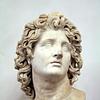Take a photo of a barcode or cover
A comprehensive and important epic of how we know what we know about our fundamental makeup. To read and truly digest this book is to begin to fathom not only the possibilities of gene manipulation, but to realize the foundations have already been built and the structure above is eminent.
Mukherjee has once again concisely encapsulated a seemingly imposible topic into a beautiful and harrowing book.
“Here too fitness cannot be judged in absolutes. Rather the lack of fitness in colloquial terms, was defined by the relative mismatch of an organism with its environment.”
Mukherjee has once again concisely encapsulated a seemingly imposible topic into a beautiful and harrowing book.
“Here too fitness cannot be judged in absolutes. Rather the lack of fitness in colloquial terms, was defined by the relative mismatch of an organism with its environment.”
challenging
informative
fast-paced
hopeful
informative
reflective
medium-paced
In the acknowledgements of the book, Siddhartha Mukherjee writes that writing The Emperor of all Maladies exhausted his imagination. And that shows in this book. It is very very unimaginative, and reads like a chore. Not that inspiring to know that even the writing felt like a chore.
This is definitely no The Emperor of all Maladies but it comes close. It has the same hallmark of density though. The structure of DNA is revealed in the first third of the book, and you are left wondering how much more is left to be discovered in the rest of the book.
Also, Nobel rules about posthumous awards are stupid. Rosalind Franklin definitely deserved the Prize. She literally did all the work.
Back to the book. Way too infodense. Tries too hard to have random sensationalist anecdotes. Sloppy editing. Too many names that live for less than three to four pages. A bunch of Wikipedia pages stitched together with a background story about the author's family.
The last two parts get very interesting. Mostly because the descriptions are of phenomena rather than a littany of "person x tried this, and that happened".
This is definitely no The Emperor of all Maladies but it comes close. It has the same hallmark of density though. The structure of DNA is revealed in the first third of the book, and you are left wondering how much more is left to be discovered in the rest of the book.
Also, Nobel rules about posthumous awards are stupid. Rosalind Franklin definitely deserved the Prize. She literally did all the work.
Back to the book. Way too infodense. Tries too hard to have random sensationalist anecdotes. Sloppy editing. Too many names that live for less than three to four pages. A bunch of Wikipedia pages stitched together with a background story about the author's family.
The last two parts get very interesting. Mostly because the descriptions are of phenomena rather than a littany of "person x tried this, and that happened".
The Gene is one of the best books of my year so far. In fact, it's one of the top five best books I have ever read. It is brilliant and brilliantly written; accessible, expressive, and--often--painfully relevant.
Dr. Mukherjee has a unique writing style that marries a superb teaching ability with humble, conversational prose. While I learned about genes and genetics in high school biology, I didn't internalize the grandeur of the education I was receiving. I couldn't see the forest for all the Punnett squares. Dr. Mukherjee's ability to cut through scientific jargon to explain difficult concepts simply is almost as incredible as the subject itself.
The Gene: An Intimate History is incredible. It is history and science made understandable. There are six parts: Parts 1-4 are primarily a history of genetics and our discovery of the gene, Part 5 is history, but also a scientific explanation, and Part 6 is about consequences. I would attempt to list all the epiphanies and lessons I learned while reading this masterpiece, but I feel that would rob you, the future reader, of discovery and me of my carefully crafted academic facade. I'll describe just two tidbits I learned from The Gene: modern insulin manufacturing is only possible thanks to genetic engineering and "normal" is quite malleable and really only a match of the right phenotype and the right circumstances. Understanding "normalcy" is essential for the future of genetic therapy and diagnosis. While we often get wrapped up in the ethical concerns of genetic therapy and diagnosis, this field is much deeper than whatever bogeymen we can conjure.
That said, Dr. Mukherjee does spend a significant portion of his book outlining the ethical ramifications of genetic diagnosis, therapy, and modification. What do we gain or lose by terminating pregnancies virtually guaranteed to deliver children who will live in significant suffering? What are the consequences for humanity if we adjust our genomes to exclude hereditary conditions? Would you choose to alter the genes of a child with Down Syndrome, autism, or bipolar disorder if you knew it would also eliminate the creativity or loving disposition that accompanies it? These are not easy questions to answer. In fact, I'm not sure there are answers. But I'm grateful to Dr. Mukherjee for discussing them anyway because they must be carefully considered.
You owe it to yourself to read The Gene. The world and its diversity are amplified by its lens. Wouldn't you like to know who you are, and why?
Dr. Mukherjee has a unique writing style that marries a superb teaching ability with humble, conversational prose. While I learned about genes and genetics in high school biology, I didn't internalize the grandeur of the education I was receiving. I couldn't see the forest for all the Punnett squares. Dr. Mukherjee's ability to cut through scientific jargon to explain difficult concepts simply is almost as incredible as the subject itself.
The Gene: An Intimate History is incredible. It is history and science made understandable. There are six parts: Parts 1-4 are primarily a history of genetics and our discovery of the gene, Part 5 is history, but also a scientific explanation, and Part 6 is about consequences. I would attempt to list all the epiphanies and lessons I learned while reading this masterpiece, but I feel that would rob you, the future reader, of discovery and me of my carefully crafted academic facade. I'll describe just two tidbits I learned from The Gene: modern insulin manufacturing is only possible thanks to genetic engineering and "normal" is quite malleable and really only a match of the right phenotype and the right circumstances. Understanding "normalcy" is essential for the future of genetic therapy and diagnosis. While we often get wrapped up in the ethical concerns of genetic therapy and diagnosis, this field is much deeper than whatever bogeymen we can conjure.
That said, Dr. Mukherjee does spend a significant portion of his book outlining the ethical ramifications of genetic diagnosis, therapy, and modification. What do we gain or lose by terminating pregnancies virtually guaranteed to deliver children who will live in significant suffering? What are the consequences for humanity if we adjust our genomes to exclude hereditary conditions? Would you choose to alter the genes of a child with Down Syndrome, autism, or bipolar disorder if you knew it would also eliminate the creativity or loving disposition that accompanies it? These are not easy questions to answer. In fact, I'm not sure there are answers. But I'm grateful to Dr. Mukherjee for discussing them anyway because they must be carefully considered.
You owe it to yourself to read The Gene. The world and its diversity are amplified by its lens. Wouldn't you like to know who you are, and why?
informative
inspiring
reflective
slow-paced
I was told once I looked like someone who enjoyed the punnett square unit of bio classes… and they were right. This book was really good. Felt like I learned a lot!! Reminded me it’s nice to use my brain reading sometime lol
This book was fascinating! I've always been interested in genetics, but this book brought up a lot of information that was new to me.
Excelente! Uno de los mejores libros que he leído este año.
informative


